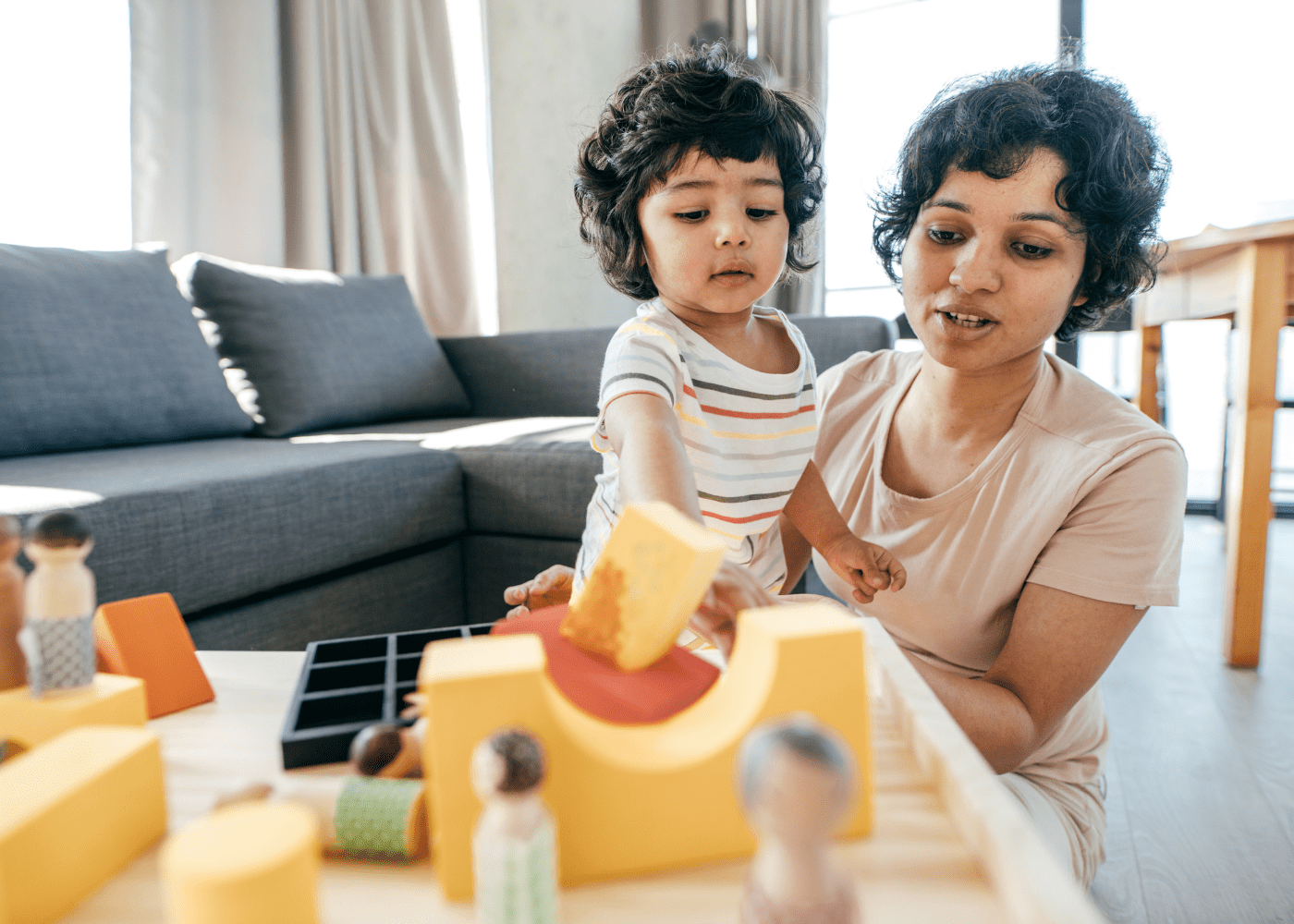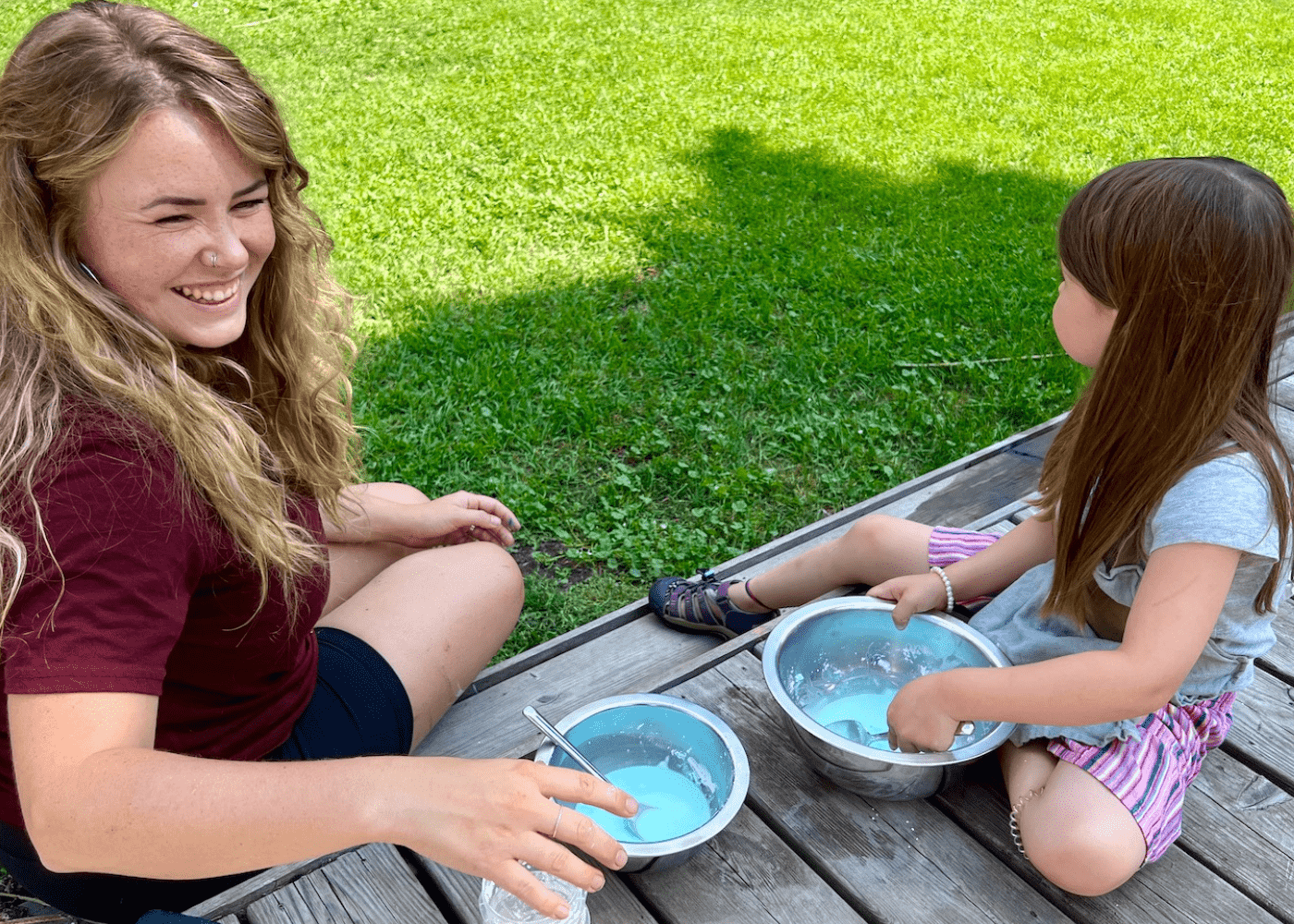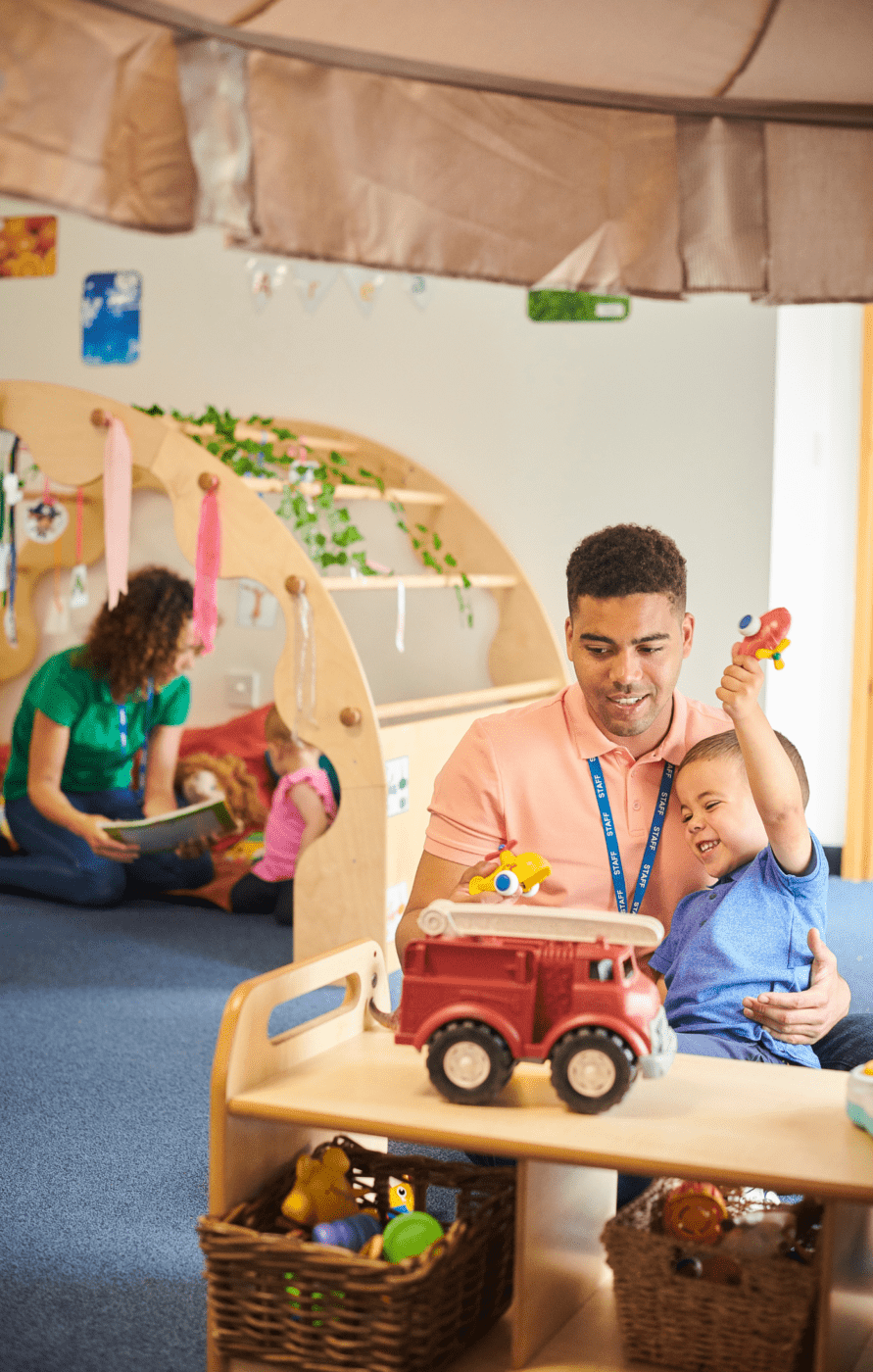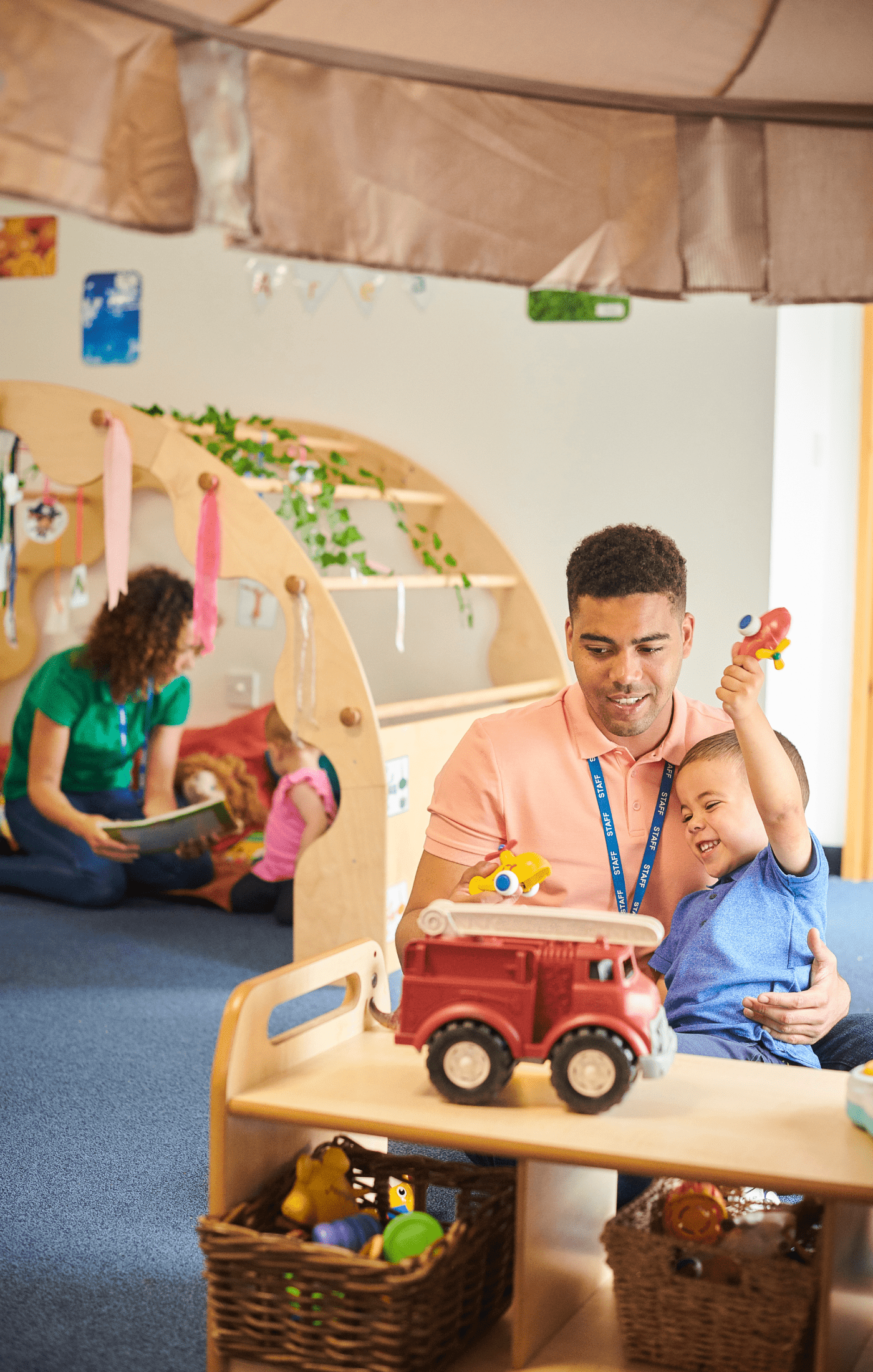Child care is an essential part of child development. It ensures that children receive the right amount of attention, guidance and protection they need as they grow. Child care is often provided by a parent or guardian, but can also be provided by other people such as babysitters, childminders, or nannies.
This blog post aims to discuss the importance of child care, guide parents in finding the right childcare provider for their family, and explore how child care can provide a safe environment for children to learn and develop.
The benefits of child care services
A child’s growth and development are greatly affected by the quality of child care they receive. Child care should support families to provide a safe and nurturing environment, encourage positive social and emotional growth, stimulate curiosity and creativity, and allow children to explore their interests in a supportive atmosphere.
High-quality child care can also give parents peace of mind, knowing that their children are being taken care of by someone who cares about them. And, depending on the type of care your family chooses, your children may have opportunities to meet other children, to learn academic skills, and to participate in sports or other activities!
The first five years are when a child’s brain develops fastest and when they learn key social, emotional, and academic skills, skills they’ll need during kindergarten and in order to have positive educational outcomes.
The Century Foundation
For this reason, experts in early childhood education say that high-quality child care is not only important for your child’s well-being, but that it can have positive impacts on your child’s early development, too. According to researcher James Heckman, these benefits include improved life and health quality, reduced chance of criminal activity, better labor income for children once they grow up and their parents while they are in care, and higher IQ, among other benefits.
Finding the right kind of child care provider for your family
Every child and parent has different needs and preferences regarding child care. Parents should consider factors such as cost, location, hours available, qualifications of staff members, safety standards, etc., when deciding on what kind of child care best suits the needs of their child and family.
Parents must also decide if they would rather have in-home care by a nanny or babysitter or if they would prefer to enroll their children in an early childhood education facility. Depending on the amount of care your family needs, you can register for daily care or in programs like day camps during the summer if you decide to sign up at a facility.
Visiting child care centers, talking to staff members, and reading reviews online are all good ways to get a better understanding of child care options available. If you’re planning to visit a preschool, here’s a list of questions I suggest asking to help decide if they are the right fit for your family!
Where to look for caregivers
Once you have decided whether you want in-home care or to enroll your children at a childcare facility, the next step is figuring out who the best fit for your family is! Trusting someone with your child’s well-being is not an easy process (especially for first-time parents).
So, here are some tips to help you through the process from someone who has been providing childcare for over ten years.

Finding a nanny or a babysitter
My first tip here is to go with word-of-mouth. If you have a community of parents you trust, ask them for recommendations! They will likely have advice for finding a caregiver in your area and will be able to give you honest and open opinions.
But, what if you don’t have a trusted group of parents? Check out local FB pages and other online forums (like Mom groups, caregiving groups, or community forums). Ask people to message you directly with recommendations or contact information for trusted sitters.
If you don’t have any luck there, my next advice is to head to a trusted online network of childcare providers. In my many years of nannying, I have booked almost all of my work through word of mouth. But, when I’m new to a community or looking for work I use two sites: Canadian Nanny and NannyServices.ca.
I love that I can see family profiles to anticipate their exact needs and that they can see my profile to decide if my skills and interests align with theirs before even meeting. Since they also ask for availability, it’s easy to tell if a job fits both of our schedules as well. If you’re outside of Canada, try doing a Google search to find a similar networking service in your area!
Finding a daycare or afterschool center
Of course, the exact facility for your family will depend on the age of your children and the hours you need care. So, the first thing is to decide whether you need casual, part-time, or daily care. To decide when your child should start preschool, read my post here.
It is also important to find a center that fits your budget. Discuss pricing and frequency of payments before registering to ensure it is affordable for your family. For low-income families, available supports vary by country and state/province. Where I live in British Columbia, for example, there is a childcare benefit many families are eligible to receive. In the USA, you can see what is available in your state with this network at ChildCare.gov.
To find a daycare or afterschool center, the simplest way is to Google search! This way, you can see what is close to you and check out their websites before deciding to call and set up a meeting.
What’s the next step after finding child care? Setting up a meeting and asking the right questions!

What are you looking for in a caregiver?
Before meeting with your potential nanny or the director of a childcare facility, do a check-in with yourself. I suggest writing a list of the most important things for you and your child. Do you have specific learning goals? Do you value outdoor learning over classroom learning? How do you prefer caregivers approach discipline or address behavioral concerns?
These are just a few of the questions to ask yourself. Jot down the things you’re looking for so you can reflect on them after meeting with a potential caregiver. The process can feel like a whirlwind, so having notes written down will help you decide as you reflect on your meeting with them later.
I also suggest asking about a caregiver’s philosophy and or why they want to work with kids – This way, you learn what is most important to them! As you can see in the photo above, for example, I prioritize having fun and providing positive and hands-on learning experiences. The answer should be more meaningful than “kids are fun,” and should give you insight into their personal teaching or nannying style.
Questions to ask your potential caregivers
If hiring a nanny, I highly suggest setting up a meet-and-greet. Kind of like a working interview. This way, you can see how the caregiver interacts with your children, can see how your children like them, and they can decide if they will fit into your family’s needs.
Make sure to talk about important aspects of the job, like which responsibilities are expected (especially tasks additional to childcare like minor housekeeping, pet care, etc.), the hours you require, and expectations for the children (like how to handle routines, learning, discipline, etc.).
If you’ve decided to move forward with the caregiver, you can also show them around the house, give them emergency contact information, and set up the first day of work.
If choosing a school, schedule a meeting with the teacher or the director. Walking through the school and meeting with them will let you see how they actually work with the kids, will let you view the teaching and learning conditions, and will give you a feel for how well your personalities and interests match up.
Communication
Figuring out communication is also important! Talk to your chosen child care provider about how they prefer to communicate and how often. Some will send daily updates to families, whereas others will only call when they need to support families.
Even if you find the best child care for your little ones, it’s is super important to have strong communication and trust in your caregiver. Make sure they have your contact information and know who is authorized to pick up your child in your absence, too! Part of their responsibility for your child is ensuring they only go home with approved family members or a close friend.
Finally, make sure you know how to communicate if your child will be away for a day (or longer). Depending on how structured the program is, they will likely want to know this ahead of time whenever possible. If you’re hiring in-home care, be sure to communicate as far in advance as you can so that the nanny can plan accordingly!

Ensuring quality child care through safety standards
Parents should also look for child care providers who have implemented safety standards and practices that promote the health and well-being of children in their care. These may include regular background checks on employees, making sure premises are secure with locked doors and windows, having policies in place regarding discipline methods and play equipment, etc.
In my opinion, it is also very important that childcare providers are adequately qualified. There is a good reason why licensed childcare facilities require employees to have an early childhood education degree. Professionals with this schooling understand your child’s developmental needs, can plan activities that match your child’s interests and abilities and understand the many aspects of childcare, like safety and positive social-emotional learning.
Be sure to ask about the employment qualifications and safety standards at your potential facility to make sure you’re pleased and comfortable with their facility!
For nannies, I also suggest requiring a minimum of basic first aid and CPR. It’s a short course that can save a life, so in my opinion, this is absolutely necessary.
Daycare, day programs, Montessori… What’s the difference?
Finding the right child care provider for your family is already a tough decision. But, you also need to consider which type of learning you want for your child. I won’t dive into all of these different teaching styles in this post, but be sure to check out some of them to see if you prefer one teaching style over the other. After all, public school or daycare may not be for everyone!
If you want to learn more about Montessori, I have a post for you to read here.
And, to learn more about the most popular teaching styles and philosophies, check out this post by Parents.
Ask about their programs
Depending on your family’s needs, it’s also a good idea to ask about their programs (or how a nanny plans to integrate learning if seeking in-home care). Many families will want to know what their children will be learning, how it will be taught, and what the general daily schedule is like.
Quality child care providers will have no trouble answering this question, as they should have well-organized child care programs.
Another thing to consider is nutrition! Do they provide food or should you pack a lunch/snacks? Are there any foods you cannot pack due to allergy concerns?
Still unsure of how to choose the right preschool for your kiddo? Here are 7 awesome questions to ask when you are checking out a potential daycare or school for your preschooler:
What makes for quality care in a preschool?
If you’ve chosen a preschool for your child, it may be hard to tell whether they can provide quality care. Healthy Children from the American Academy of Pediatrics outlined standards that define high-quality childcare services. They state that a high-quality program has these qualities:
- Proper ratios of children to teachers: The ratio of caregivers to children should be relatively small. Your province or state will have a legal ratio of the number of teachers to children, but the key here is to consider that the smaller the group, the more nurturing and one-on-one care your child can receive.
- High staff retention: If the teachers at the school have worked there for a long time, seem well-supported, and are generally happy, that’s a good sign! Plus, if teachers stick around a long time, they have a better chance of developing long-term relationships with the kids. What’s not a good sign is a high staff turnover, showing workers discontent with the working condition.
- Consistent child care health consultant visits: This is more so if you’re in the US, but regular visits from health consultants are a sign of quality early childhood education. Some states also require these visits, so it’s worth asking if that’s the case where you live! In Canada, consultants are available though not often required. I would still ask about training and development for teachers and how they design their curriculum, regardless of which country you’re in.
Checking that specific needs can be accommodated
All children have specific needs, so it’s important to check that child care providers can accommodate them. Make it clear when you first meet with someone that they are comfortable with all aspects of your child’s care, including medical needs, behavioral needs, and potty-training needs, and that they are comfortable working with children with exceptionalities, should your child have them.
Conclusion
Child care is an essential part of child development. It provides children with guidance, protection, and a safe environment to learn and grow. Parents should take the time to research child care options available for their family in order to ensure that their child receives quality child care from a provider who has implemented necessary safety standards.
And, once you’ve found a childcare provider, be sure you’re both prepared for the first day! If you’re really nervous, be sure to talk this through with them. Experienced nannies and childcare facilities will be able to support both you and your child through the transition!
FAQs
What is the definition of childcare?
Child care is a service provided by a babysitter, nanny, early childhood learning facility, or other trusted adults. A caregiver is responsible for ensuring the safety and wellbeing of your child while being responsible for learning and growth opportunities.
What is the youngest age for daycare?
The youngest age accepted will depend on childcare facilities in your area, and there is no set youngest age for daycare. Some centers will accept infants as young as a few months old, whereas others require your child to be at least one year old.
What is a good age to put a child in daycare?
Honestly, this depends most on your child’s specific needs and your family’s reasons for care. You need to wait until your child is emotionally, socially, and physically ready to be away from you for an extended period. But, we also understand that parents have very real and pertinent care needs, so there isn’t a one-size-fits-all answer here. Whatever your child’s age, focus on making it a healthy transition for you and your little one.
Resources
Here are some other posts that you may be interested in reading:
- Classroom management songs for caregivers (or parents!)
- Tips for being an excellent nanny
- Learn all about Montessori parenting
- Find the best potty training books for parents
References
The Case for Child Care and Early Learning for All: Healthy Child Development and School Readiness, The Century Foundation
There’s more to gain by taking a comprehensive approach to early childhood development, by James Heckman
All things parenting
Hey there, Momma (or Dad)! Looking for parenting-related posts? We’ve got everything covered from potty training support to baby gear advice.

